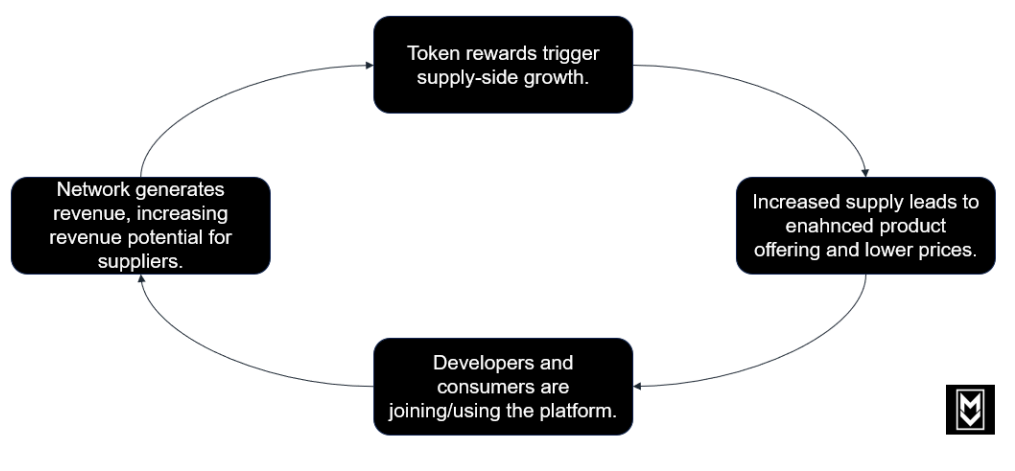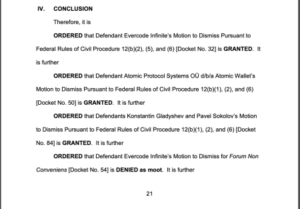Last updated:
 Why Trust Cryptonews
Why Trust Cryptonews

Decentralized physical infrastructure network (DePIN) platform and Layer 1 network Peaq has added major European enterprises and research institutions to its genesis node pool.
According to the company’s announcement from Sept. 9, the new node operators include Deutsche Telekom MMS, Lufthansa Innovation Hub, Bertelsmann Investments, and the Technical University of Munich (TUM), one of Germany’s leading universities for research.
These organizations, with a combined valuation of over $170 billion, are now supporting the network’s infrastructure and opening up opportunities for community members to stake their tokens and share in the rewards.
Welcome to the peaqosystem 🎆
▫️ Deutsche Telekom (@deutschetelekom)
▫️ Lufthansa Innovation Hub (@LHInnovationHub)
▫️ Technical University Munich (@TU_Muenchen)
▫️ Bertelsmann Investments (@Bertelsmann_com)These leading enterprises with a combined valuation of more than $170… pic.twitter.com/t7dRy5AQp9
— peaq (@peaqnetwork) September 9, 2024
Enterprise Interest Drives DePIN Adoption
At its genesis, Peaq’s active node pool is limited at 32, each supported by staked tokens from both the node operator and their delegators. The pool is open to anyone to participate, allowing both enterprises and community members to run nodes. As the network grows and the demand for nodes increases, the active pool can be gradually expanded.
Delegators, community members who stake their tokens in support of their chosen active nodes, play a crucial role in the network’s success. By delegating their tokens, they not only contribute to the node’s security and performance but also earn a share of the node’s rewards.
According to Dorlöchter, co-founder of Peaq, when large enterprises such as Deutsche Telekom and Lufthansa participate in decentralized infrastructure networks, it sends a clear message about the viability of these projects.
“Enterprise adoption is crucial for DePIN, and what we see here is a sign of wider enterprise interest for this promising segment.”
To further facilitate the integration of DePINs into the corporate world, Peaq also launched its Enterprise Adoption Program, which aims to connect decentralized infrastructure projects with leading companies. Enterprises that join the program will receive ecosystem updates, strategic consultations, and opportunities to invest in DePIN projects on Peaq.
DePINs to Drive Massive Web3 Growth
DePINs are blockchain protocols designed to decentralize real-world infrastructure, such as communication networks, data warehouses, and energy markets.
By offering token rewards, DePINs incentivize individuals to contribute underutilized resources or financial capital to network development. This approach can effectively address the “cold start problem” for resource-intensive networks.

DePINs have experienced rapid growth and adoption across various sectors in recent years. Messari reported that DePIN projects added over 600,000 new nodes in 2023 alone, spanning compute, wireless, and sensor networks.
According to Messari, the DePIN market cap has surged by over 400% year-over-year, reaching a total of $20 billion. This growth has been fueled by a 296% increase in DePIN fundraising, leading to the emergence of new acronyms like DeGEN, DeGIN, zk-TLS, and AI x DePIN.
The total market cap for DePIN now sits at $20 billion, growing over 400% YoY.
With DePIN fundraising up 296% YoY, new acronyms are here including DeGEN, DeGIN, zk-TLS, and AI x DePIN.
Much has changed and much needs explaining.
It’s time for an @MessariCrypto DePIN Update🧵 pic.twitter.com/WGoVH8HeN6
— Dylan Bane (@dylangbane) August 9, 2024















